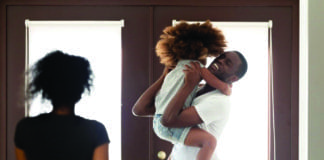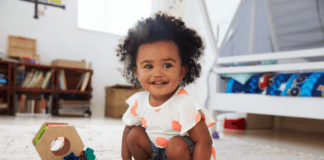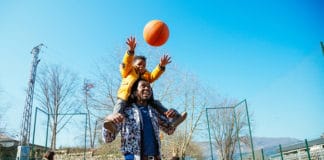Tags Diana Hembree
Tag: Diana Hembree
Parenting from prison: Ways to maintain your family ties while incarcerated
As tortuous as the U.S. prison system is to its residents, it is criminally so to the children of incarcerated parents, and their caretakers. Herein lies a wealth of inspiring and uplifting ways to proactively heal the daily wounds of parenting, family unity and staying human while incarcerated.
Having ‘The Talk’ with your children in the era of Black...
One of the most important moments perhaps in the process of a Black child’s life is “The Talk.” The COVID-19 pandemic crisis and the upheaval caused by the recent police killings of George Floyd, Breonna Taylor and so many others, are pushing parents with an urgency to have “The Talk” with their children earlier than later.
Coronavirus parenting: Protecting your children during the pandemic
Shortly after the flood in New Orleans following Hurricane Katrina, local residents risked their lives launching small boats to rescue people stranded on top of their roofs. This ad hoc group, which included many skilled Cajun boat pilots, became known as the Cajun Navy, a volunteer group who have saved thousands of people in other disasters including Hurricanes Florence, Harvey, Irma and Michael.
Supporting your children during the COVID-19 outbreak
We’ve never had to deal with a pandemic like COVID-19 that upended our lives overnight, with schools, universities and most businesses shut down, hospitals scrambling to prepare for an onslaught of novel coronavirus victims, and government orders to stay at home indefinitely.
Pets Rx: How a furry companion can help protect kids against...
More than 163 million cats and dogs currently make their homes in backyards and living rooms across America. That adds up to a lot of dug-up flower beds, vet bills and ruined upholstery. It also adds up to a lot of happiness.
Parent with ACEs: Is it time to change your parenting playbook?
A recent UCLA study shows that the children of parents with four or more Adverse Childhood Experiences (ACEs), such as abuse or neglect, are twice as likely to develop ADHD, which makes it more likely children will become hyperactive and unable to pay attention or control their impulses.
Stress busters for working parents
Working parents, among others, may find themselves increasingly short-tempered, anxious or depressed as a result of stress at work. This may be especially hard if you’re parenting with ACEs – that is, if you’re dealing with unresolved trauma from your own childhood.
Talking with kids about the dangers of e-cigarettes
Some e-cigarette users have had seizures after a few puffs or a day of vaping, according to an alert by the Food and Drug Administration.
Parenting with ACEs: How you can support your toddler
"Take care of yourself. If you’re healthy and feeling good, you can better respond to your child in a calm, nurturing way."
Play and kids with ACEs: ‘That’s where everything is worked out’
When children are deprived of plentiful self-directed opportunities to experience all of the play types, they lose potential pathways to fully grow, develop and heal.
What do Oprah, Kendrick Lamar and ‘The Rock’ have in common?...
For teens and young people struggling with mental illness or childhood, learning about celebrities who’ve had similar experiences can be freeing.
Fatherly, a website for dads that aims to empower men to...
“When we write about relationships, we’re not just looking about the relationship of fathers to their wives or children, but to their own parents and relatives, their friends and their community.”
Kids, adversity and sleep problems: What you can do
All kids need a good night’s sleep. Research shows this is essential for neurotransmitters, the chemicals that allow brain cells to communicate.
Reviving the family dinner
For kids with trauma from adverse childhood experiences (ACEs) such as abuse, divorce or neglect, such anchoring rituals are especially important. “Family dinners provide a ritual that is so tremendously important and comforting."
‘I like to move it, move it!” How dance and other...
“The only way to move from these super-high anxiety states to calmer, more cognitive states, is rhythm,” he concludes. "This needs to happen before children see a therapist, because otherwise they may be too fearful and distraught to participate."
How chores can help kids with ACES
Research shows that children who do chores have fewer behavior problems, are more engaged in school, enjoy better mental health in later life and are part of a stronger family due to shared responsibility.
Parents and children: The power of play
It turns out you gave your child one of the best possible gifts for adulthood: the power of play.

 Store
Store



















